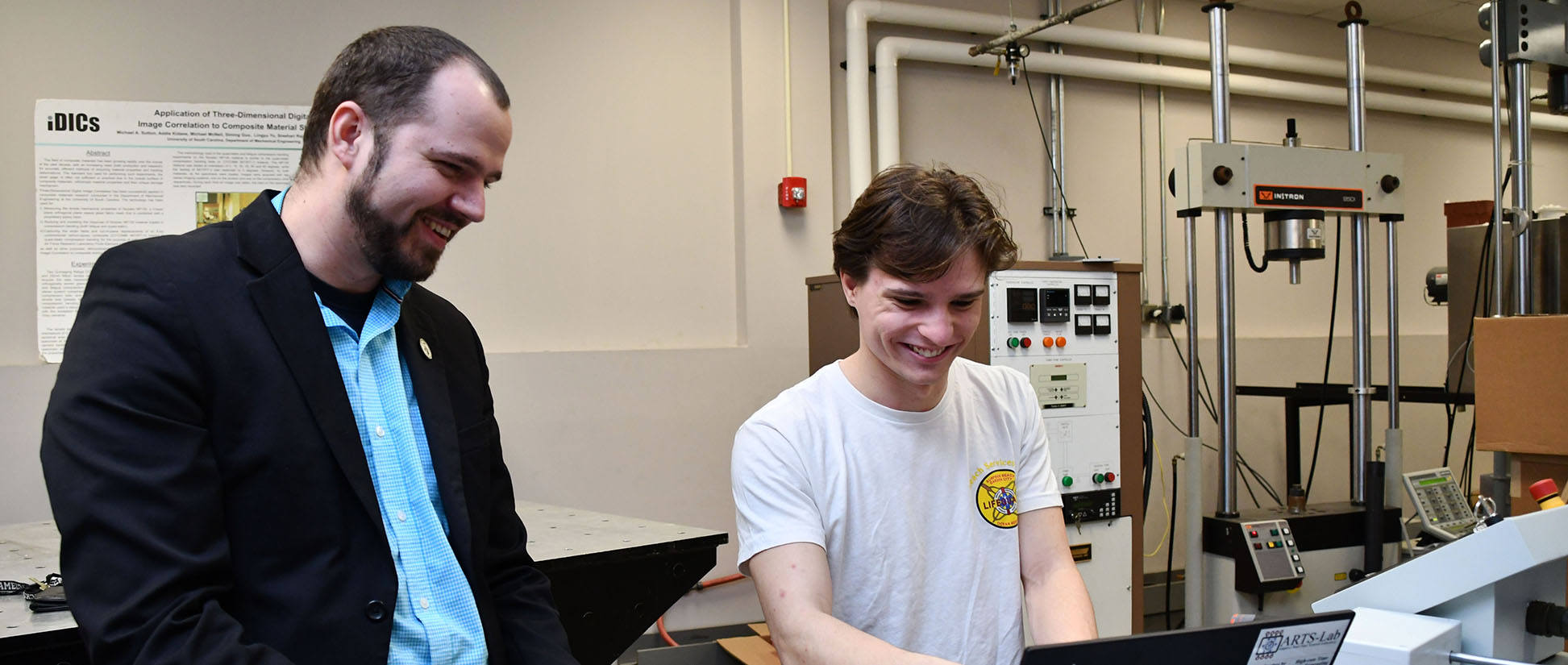Mechanical Engineering Assistant Professor Austin Downey recently received the National Science Foundation (NSF) CAREER Award to study data-driven control of high-rate dynamic systems. Downey’s work will pursue fundamental questions involving time constraints in real-time machine learning and builds on his previous research with the U.S. Air Force Office of Scientific Research.
According to Downey, this is the first work of its kind to control high-rate structures and systems at the sub-microsecond time scale. His research will address how programmable hardware can be used to enable machine learning and control for systems that demand ultra-low latency.
“The Air Force was an early supporter of our research in hardware/software co-design, which we began in 2018,” Downey says. “Their support allowed us to uncover fundamental challenges involved in understanding high-rate dynamic systems, and this project from the NSF will allow us to investigate challenges while considering the very fast speeds required.”
Downey’s expertise and research interests include low-latency machine learning, real-time model-updating, adaptive structures and structural health monitoring. He is now the recipient of the highest research award for young investigators from both the U.S. Air Force and the NSF, with both projects focused on high-rate control. “It’s nice to have the highest award from both agencies. It demonstrates that there is broad interest in this area and helps in trying to create a center of expertise for high-rate challenges here at USC,” he says.
The NSF CAREER Award is for five years, and Downey plans to develop the data-driven control methodology and build a final hardware demonstration. His research team will analyze the hardware/software co-design of sub-millisecond machine learning control for high-rate dynamic systems with non-stationary inputs that change the system’s state, such as damage. Such systems include combustion processes in scramjet engines and active hypersonic vehicle structures.
The research is expected to provide an enhanced understanding of how hardware and software must be co-designed together to meet stringent latency requirements without violating accuracy or resource constraints. That knowledge has practical applications in cars, airplanes and hypersonic vehicles. It would also provide quantifiable and transferable advancements in the fields of self-driving cars, speech recognition, physical intrusion detection, weather forecasting and medical diagnosis.
Downey’s project will also integrate research and education. An open-source textbook on machine learning controls will be developed and used to create educational modules that will be disseminated as all-day workshops at professional conferences. The modules will be integrated into the University of South Carolina’s graduate and undergraduate education and presented at local high schools. Additionally, students from a local high school will work as research assistants on appropriate level tasks and participate in the development of the modules, which will support mechatronics and robotics thrusts at their school.
